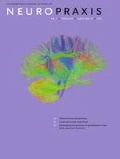Samenvatting
Volwassenen met aandachtstekortstoornis met hyperactiviteit (ADHD) hebben vaak moeite met tijdmanagement en het nakomen van afspraken. Een belangrijke functie voor tijdmanagement is tijdwaarneming, die weer samenhangt met de werking van het kortetermijn- en het werkgeheugen. De onderliggende mechanismen van tijdmanagement bij volwassenen met ADHD zijn grotendeels onbekend.
In een recente studie van Mette en collega’s uit 2015 werden tijdwaarneming en geheugenfuncties getest bij volwassen patiënten met ADHD (n = 59) die wel of niet behandeld werden met stimulantia. De prestaties op een tijdreproductietaak en kortetermijn- en werkgeheugentaken werden vergeleken met die van gezonde controles zonder een ADHD-diagnose (n = 32).
Zoals verwacht lieten de resultaten een tekort zien in het kortetermijn- en het werkgeheugen bij volwassenen met ADHD vergeleken met de controles. In tegenstelling tot eerder onderzoek verschilden de groepen niet op de tijdreproductietaak. Ook werd er geen relatie gevonden tussen de geheugenprestaties en de prestaties op de tijdreproductietaak. Deze studie suggereert dat andere cognitieve tekorten dan de tijdwaarneming per se, zoals executieve disfuncties of het geheugen, relevanter zijn voor patiënten om zich aan afspraken te houden. Verder onderzoek is nodig om deze resultaten verder te valideren, bijvoorbeeld omdat er enkele beperkingen kleven aan de tijdreproductietaak.
Literatuur
Davidson MA. ADHD in adults: a review of the literature. J Atten Disord. 2008;11:628–41.
Alderson RM, Kasper LJ, Hudec KL, Patros CH. Attention-deficit/hyperactivity disorder (ADHD) and working memory in adults: a meta-analytic review. Neuropsychology. 2013;27:287–302.
Barkley RA. Differential diagnosis of adults with ADHD: the role of executive function and self-regulation. J Clin Psychiatry. 2010;71:e17.
Buhusi CV, Meck WH. What makes us tick? Functional and neural mechanisms of interval timing. Nat Rev Neurosci. 2005;6:755–65.
Meck WH, Malapani C. Neuroimaging of interval timing. Brain Res Cogn Brain Res. 2004;21:133–7.
Meck WH. Neuropsychology of timing and time perception. Brain Cogn. 2005;58:1–8.
Church RM, Meck WH, Gibbon J. Application of scalar timing theory to individual trials. J Exp Psychol Anim Behav Process. 1994;20:135–55.
Church RM. A tribute to John Gibbon. Behav Processes. 2002;57:261–74.
Meck WH, Church RM, Matell MS. Hippocampus, time, and memory – a retrospective analysis. Behav Neurosci. 2013;127:642–54.
Barkley RA, Murphy KR, Bush T. Time perception and reproduction in young adults with attention deficit hyperactivity disorder. Neuropsychology. 2001;15:351–60.
Toplak ME, Rucklidge JJ, Hetherington R, John SC, Tannock R. Time perception deficits in attention-deficit/hyperactivity disorder and comorbid reading difficulties in child and adolescent samples. J Child Psychol Psychiatry. 2003;44:888–903.
Mette C, Grabemann M, Zimmermann M, Strunz L, Scherbaum N, Wiltfang J, Kis B. No Clear Association between Impaired Short-Term or Working Memory Storage and Time Reproduction Capacity in Adult ADHD Patients. PLoS one. 2015;10:e0133714.
Valko L, Schneider G, Doehnert M, Muller U, Brandeis D, Steinhausen HC, et al. Time processing in children and adults with ADHD. J Neural Transm. 2010;117:1213–28.
Baddeley A. Working memory: theories, models, and controversies. Annu Rev Psychol. 2012;63:1. doi:10.1146/annurev-psych-120710-100422. (PMID: 21961947).
Brown A, Biederman J, Valera E, Lomedico A, Aleardi M, Makris N, et al. Working memory network alterations and associated symptoms in adults with ADHD and Bipolar Disorder. J Psychiatr Res. 2012;46:476–83.
Mette C, Zimmermann M, Grabemann M, Abdel-Hamid M, Uekermann J, Biskup CS, et al. The impact of acute tryptophan depletion on attentional performance in adult patients with ADHD. Acta Psychiatr Scand. 2013;128:124–32.
Wiegand I, Kilian B, Hennig-Fast K, Müller H, Töllner T, Finke K. EEG markers of reduced visual short-term memory capacity in adult attention deficit/hyperactivity disorder. J Vis. 2015;15(12):79. doi:10.1167/15.12.79. (PubMed PMID: 26325767).
Noreika V, Falter CM, Rubia K. Timing deficits in attention-deficit/hyperactivity disorder (ADHD): evidence from neurocognitive and neuroimaging studies. Neuropsychologia. 2013;51:235–66.
Mitchell JT, Zylowska L, Kollins SH. Mindfulness meditation training for attention-deficit/hyperactivity disorder in adulthood: current empirical support, treatment overview, and future directions. Cogn Behav Pract. 2015;22(2):172–91.
Arns M, Heinrich H, Strehl U. Evaluation of neurofeedback in ADHD: the long and winding road. Biol Psychol. 2014;95:108–15. doi:10.1016/j.biopsycho.2013.11.013.
Author information
Authors and Affiliations
Corresponding author
Rights and permissions
About this article
Cite this article
Mette, C., Zielke, A. & Groen, Y. Waarom volwassenen met ADHD vaak te laat komen op afspraken – is het een beperking in de tijdwaarneming of het geheugen?. Neuroprax 20, 29–33 (2016). https://doi.org/10.1007/s12474-015-0115-y
Received:
Accepted:
Published:
Issue Date:
DOI: https://doi.org/10.1007/s12474-015-0115-y

